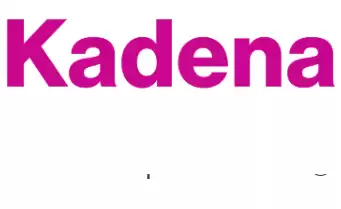The Kadena network presents new solutions for scaling the first-level proof of work (PoW) blockchain, designed for both individual developers and enterprises.

As the only scalable hybrid blockchain using PoW-based consensus, the Kadena blockchain ecosystem offers public and private networks. The Kadena crypto project is rapidly becoming an industry leader, and the KDA token performs several important functions of the project and is vital to ensure its complete decentralization.
In this article, we will delve into the Kadena crypto ecosystem and consider the fundamental structure of the Kadena blockchain network. In addition, we will consider the new hybrid blockchain technology of the project, and discuss various utilities of the KDA token and options for corporate use of the Kadena crypto project.
What is Kadena?
Kadena — Hybrid Blockchain Technology
Chainweb (public network)
Kuro (private network)
Pact — smart contract programming language
KDA Token
Kadena DAO
Kadena Enterprise Use Cases
Results
What is Kadena?
Stuart Popejoy and Will Martino are the founders of Kadena, who launched a new hybrid blockchain model in January 2020. Kadena uses the traditional PoW consensus mechanism with a hashing algorithm, providing a scalable, fast and secure blockchain solution.
kadena
Having experience in blockchain development at JPMorgan Chase, Popejoy and Martino present Kadena as a solution to the shortcomings and limitations of the two largest cryptocurrencies and their blockchains at the moment, Bitcoin and Ethereum.
Kadena is the world's first scalable proof—of-work (PoW) blockchain using sharding. The Kadena network itself operates in several intertwining block chains. This includes a first-level public network called "Chainweb" and a second-level private network called "Kuro". The third key element of Kadena is the open source programming language Pact.
This hybrid blockchain technology combined with the valuable experience of the project team makes Kadena a good choice for corporate blockchain solutions. By its nature, the project offers a scalable, flexible, fast and smart contract-compatible payment solution for businesses.
In 2018, the project attracted $15 million in funding from 16 investors, including Susquehanna International Group (SIG) and INBlockchain (INB). According to CoinGecko, at the time of writing, Kadena's market capitalization was $937 million.
Kadena — Hybrid Blockchain Technology
Kadena is a multi-chain network consisting of many "bitcoin-like" chains. Initially, there were ten chains in the Kadena network at the time of launch. However, the scalable infrastructure means that Kadena can add additional chains for infinite growth.
kadena - hybrid blockchain
A multi-chain architecture increases throughput and security through additional chains. In 2020, Kadena grew from 10 to 20 networks, which doubled the project's capacity. The team plans to expand this number to 100 networks over the next year. The team estimates that with 100 active chains, Kadena will be able to handle a total of one million TPS.
Kadena's scalable hybrid blockchain infrastructure works using the mechanism of asynchronous creation of multiple blocks in different peer-to-peer chains at the same height. Thus, the amount of hash power required to create each block is drastically reduced, which at the same time increases the network bandwidth.
Chainweb (public network)
Chainweb is a unique publicly available proof—of-work (PoW) Kadena blockchain that uses a parallel chain architecture to provide high throughput and scalability.
Fully scalable Chainweb networks can run thousands of chains simultaneously, increasing throughput and maintaining security with each new chain added. In addition, Chainweb claims to be the only segmented and scalable first-level PoW network.
In addition, Chainweb operates using mining operations with competitive distribution across multiple chains. In turn, this increases the resistance of chains to attacks, reduces competition and hashing speed for each chain, and also eliminates the resulting energy footprint of operations.
Chainweb is much more energy efficient than other proof-of-work (PoW) networks with a single block.
Kuro (private network)
The private network within the Kadena crypto project is called Kuro. Kuro is a second—tier network that developers can use to create and deploy scalable, secure, and private decentralized applications (dApps).
Kuro is now a fully operational open source project, as community releases were initially available on the Microsoft Azure marketplace and Amazon Web Services (AWS).
In 2020, the introduction of Kuro coincided with an update adding ten more chains to the network. As a result, Kadena has become an industry-leading project that processes 480,000 transactions per second (TPS) across all chains, surpassing Solana, and being the world's fastest blockchain capable of processing up to 65,000 TPS.
Pact — smart contract programming language
Pact is a smart contract programming language. Having been thoroughly tested in production-ready applications, Pact allows anyone with Microsoft Excel-level programming competence to create fully functional smart contracts and publish them directly on the blockchain.
The Kadena programming language simplifies contract updates, transaction logic, multi-signature capabilities authorizing the latest security protocols, and error messages. In addition, Pact represents an efficient and functional balance of data management, authorization, and workflow.
Using Pact, developers can create secure internetwork decentralized applications (dApps) with high bandwidth. In addition, developers can choose and manage their individual approaches to inter-blockchain communications.
KDA Token
The native Kadena KDA token has the same roles and functions as ETH in Ethereum. When using the Kadena platform and signing transactions that require computing gas, users can cover these costs using the KDA token.
In addition, miners on the Kadena blockchain receive a reward in KDA tokens with each block. Moreover, holders of the KDA token can bet on their assets and offer updates for the platform. This is available through the Kadena Decentralized Autonomous Organization (DAO).
The KDA token issue schedule occurs by mining and issuing allocated tokens, and the total maximum supply of KDA tokens is one billion. There is a certain number of KDA tokens that were minted during the launch of Genesis blocks. Genesis blocks are the first blocks that were mined, and from which the rest of the chains in the Kadena blockchain network were made up.
However, most (70%) KDA tokens are a reward for mining for network nodes. In addition, the emission curve is designed to provide an infrastructure for scaling. The annual reduction in emissions of mining rewards is set for 100 years. This creates trust, resilience and strong tokenomics for the KDA token. Tokens allocated to investors, depositors and the Kadena team (10%) have a five-year issue schedule.
Kadena DAO
Kadena hosts the first version of its decentralized autonomous organization (DAO) in its public blockchain. Kadena DAO is now available via "dao.init". Performing two main functions, Kadena DAO allows the community to propose platform updates and vote for them.
In addition, Kadena DAO wants its participants to, so to speak, establish a decentralized process that can manage the addition of new functions to the Kadena platform itself.
As a flexible infrastructure, the Kadena DAO community has governance and influence over the structure of the DAO. This includes the introduction of a token-based design for betting and blocking requirements for participation. The next Kadena DAO update will be more community-oriented, which will provide more power over the entire Kadena platform.
Before launching the main DAO network, Kadena reviews community feedback on its functions, processes and infrastructure structure as a whole. Thus, through "dao.init" and "dao.forum" Kadena DAO has two key parties; guardians and ambassadors. Guardians are participants who can make and approve proposals for updating.
Offers can be absolutely anything: from code and user interface (UI) adjustments to marketing, public and informational events for the Kadena project. Moreover, to submit an offer, the only requirement is to block 500,000 KDA tokens.
Ambassadors have the opportunity to collectively decide on the same proposal. Moreover, by a majority vote, the ambassadors have the right to freeze the entire Kadena DAO for seven days. In turn, any submitted offers expire, which invalidates the offer. Discussions of Kadena's DAO updates are available on the "dao.init" forum. The guardians act as moderators, and the ambassadors are regular users.
Kadena Enterprise Use Cases
Kadena's multi-chain architecture can be applied in various scenarios of corporate use. For example, a global disease treatment company called Rymedi is working in partnership with the U.S. Food and Drug Administration (FDA) on a pilot using blockchain technology to create an application that collects health data to expand patent protection.
kadena enterprise
In addition, Kadena is working with alternative investment provider USCF to develop products on Kadena's private network. According to one of the founders, Will Martino, UCFC believes that a hybrid blockchain can become the basis of the next generation of exchange-traded funds (ETFs). Thus, it seems that Kadena technologies are suitable for large-scale implementation in enterprises.
Results
Kadena's cryptocurrency ecosystem is rapidly expanding, and large and small enterprises are adopting compatible blockchain solutions offered by the project. Using the new technology of public and private hybrid blockchain, Kadena works with several interlocking blockchains.
Moreover, as a network compatible with smart contracts, Kadena offers developers a cross-chain landscape for developing and deploying applications using the world's first secure, scalable first-level blockchain with proof of work (PoW) Chainweb. In addition, Kadena offers Kuro, a second-level private network intertwined with Chainweb.
The introduction of Kuro has doubled Kadena's throughput, capable of performing 480,000 transactions per second (TPS), thereby gaining the title of the fastest blockchain in the industry.
In addition, Kadena hosts its own decentralized exchange (DEX) Kaddex. Kadena claims that Kaddex is a multi-chain protocol running on a single scalable proof-of-work (PoW) blockchain. This is the world's first "truly decentralized DEX".
Since the Kadena hybrid blockchain network works with several interacting chains, each of them requires the creation of a new account. This means that if users want to have the same account name on the network, they must be the first to register this name in all chains separately.
In addition, it is worth noting that it is not the account name itself that determines ownership. Rather, it is a set of keys associated with an account. Thus, Kadena encourages users to pay attention to the chains in which they make transactions.

 Spain
Spain
 Portugal
Portugal



